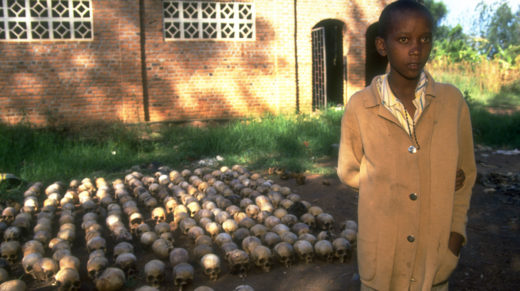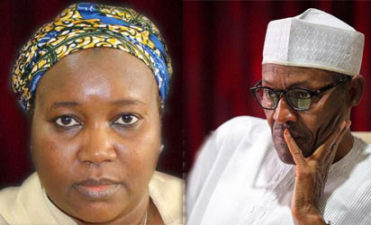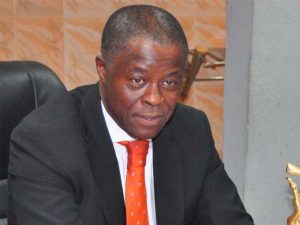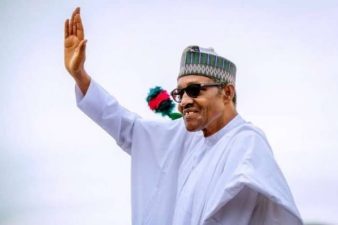* At home in Kigali
* UN mourns Rwandan genocide victims
* Lessons of Rwanda for Nigeria as government, as people
By Olanrewaju Awosanya and Kemi Kasumu
The world will never forget in a hurry the killing of over 800,000 people in Rwanda during the 1994 genocide said to have been incited by hate speeches. It is the reason the Nigerian Embassy of the former war-torn country and its sympathizers all over the world now mark the genocide on annual basis in commemoration of the sad event.
Tagged ‘Kwibuka Twiyubaka‘, the carnage was said to have been against the Tutsi tribe of Rwanda 24 years ago.
On ground at the Nicon Hilton Hotel Abuja venue of the Nigerian side of the celebration, The DEFENDER correspondent gathered that the commemoration is held yearly as remembrance of the genocide that took place in 1994 in Rwanda.
Holding the commemoration is not for any other thing but to serve as history to be learned from in order for surviving citizens of Rwanda, as well as citizens of other nations of the world particularly on the African continent, to take caution and know why incitement to arms conflicts and hate speeches among the people should not be attempted again.
Embassy official said, “It is observed every year on this date (April 7) and a week of mourning has been dedicated whereby Rwandans and other intranational can join to pay tribute to reflect on what had happened and chat a way forward on what to do to counter the ideology of genocide especially to make sure that what happened in Rwanda never happens again both in Rwanda and other part of the world.”
The Ambassador of Rwanda to Nigeria, Mr. Kamanzi Stanislas, in his address pointed out that Kwibuka is part of the history of Rwanda to remember the genocide actually took place and had a large death toll of more than a million Tutsis.
“We need to reflect on what led to the carnage which was as a result of the leadership that never cared about the people. Doing so firstly is to bring about a shift in better governance and the rule of law. The next part is for the next generation to be aware of what took place and to bequeath a better Rwanda to generation coming,” Ambassador Stanislas said.
At home in Kigali

People hold candles during an event in commemoration of the 1994 genocide in Kigali, capital of Rwanda, on April 7, 2018. Lighting the flame of hope and laying wreaths, Rwandans on Saturday marked the start of the 24th commemoration of the 1994 genocide with calls to keep telling the truth of that history. (Xinhua/Gabriel Dusabe)
Lighting the flame of hope and laying wreaths, Rwandans on Saturday marked the start of the 24th commemoration of the 1994 genocide with calls that people should keep telling the truth of that history.
Rwandans and friends of Rwanda all over the world joined the small central African country to remember the genocide that claimed about one million lives of ethnic Tutsis and moderate Hutus.
Rwandan President Paul Kagame and First Lady Jeannette Kagame and the dean of foreign diplomatic corps laid a wreath at the mass grave that houses more than 250,000 remains of the genocide victims.
Later, Kagame and the First Lady lit the flame of remembrance at the Kigali Genocide Memorial at Gisozi in Kigali, the country’s capital.
Representative of the genocide survivors and families of the victims also laid a wreath at the victim’s mass graves.
The flame of remembrance will burn for 100 days until July 4, the date when the genocide was stopped by the Rwanda Patriotic Army (RPA), now Rwanda Defence Forces (RDF).
Kigali Genocide Memorial is home to over 250,000 genocide victims and has three permanent exhibitions to document the 1994 genocide.
This year’s genocide commemoration is observed under the theme “Remember, Unite and Renew.”
Speaking at the event to kick-start commemoration activities, President Kagame said the truth about genocide in Rwanda holds key to sustainable unity and reconciliation among Rwandans.
“We should continue writing history about the genocide and telling the truth behind the cause of it. Rwandans must remain at the forefront of this fight to remember and keep the memory alive, to tell the truth,” he noted.
“We must keep rebuilding, increasing our strength at every level, economically, security, and ensure our society is functioning well. This will help us to be resilient despite our bad history,” the Rwandan President said.
UN mourns Rwandan genocide victims
A 14-year-old boy, Rumanzi, stands in front of rows of human skulls outside the Nitarama church near the town of Nyamata, where some 600 people were killed during the civil conflict that began in April. Rumanzi survived the massacre by hiding beneath the corpses for two days.

A mass grave in during the carnage.
While the commemorations were going on in Nigeria and at home in Rwanda, the world officially remembered the genocidal murder of over 800,000 Rwandans in 1994, even as United Nations (UN) warned that ethnic cleansing and mass atrocities continued to blight humanity.
On Rwandan genocide 24th anniversary, UN challenged the world to muster the will to prevent new atrocities and called for sharper action to prevent such wholesale violations.
UN Secretary-General Antonio Guterres, in his statement, said “states have a fundamental responsibility to protect their populations from genocide, war crimes, ethnic cleansing and crimes against humanity”.
“It is imperative that we unite to prevent such atrocities from occurring, and that the international community sends a strong message to perpetrators that they will be held accountable.
“To save people at risk, we must go beyond words,” the Secretary-General said.
On April 7, 2004, ethnic Hutus in Rwanda began the frenzied slaughter of Tutsis, moderate Hutus and others in what is widely regarded as one of the darkest episodes in recent history.
In memory of the Rwandan victims – and as a sombre reminder of the international community’s failure to intervene – the UN observes April 7 every year as an “international day of reflection.”
“Today, we remember all those who were murdered and reflect on the suffering of the survivors, who have shown that reconciliation is possible, even after a tragedy of such monumental proportions.

Rwandan government soldier holds his machine gun on the Mushubuti front line during the battle against Rwandan Patriotic Front rebels, amidst the 1994 civil unrest in the central African country.
“Rwanda has learned from its tragedy; so must the international community,” said Secretary-General Antonio Guterres in a message for the grim anniversary.
Guterres expressed concern about “the rise of racism, hate speech and xenophobia around the world.”
“These base manifestations of human cruelty provide the breeding ground for far more evil acts,” the Secretary-General said.
Adama Dieng, the UN Special Adviser on the Prevention of Genocide, said judicial punishment for such crimes is a start, but more attention must be devoted to preventing them.
“We said at the end of the Second World War ‘Never Again,’ but we witnessed the genocide of the Tutsis in Rwanda,” Dieng regretted.
Genocide is defined as certain acts committed “with intent to destroy, in whole or in part, a national, ethnical, racial or religious group”.
Genocides do not take place “all of a sudden,” Dieng said, highlighting the importance and possibility of prevention.
“Genocide is a process. The Holocaust did not start with the gas chambers. It started with hate speech.
“That is why I should say that the world failed the Rwandan people, the world failed the Bosnian people, and I hope that the world will not fail the Rohingya population,” he said.
The UN’s annual day of reflection on the Rwandan genocide is important, Dieng said, “as a way first to honour those who fell to those crimes, but also as a lesson for the future.”
“By remembering what happened in Rwanda, we are also sending a strong message to whoever around the world is inclined to commit such a crime,” he said.
Lessons of Rwanda for Nigeria as government, as people
Meanwhile, some Nigerian respondents have told The DEFENDER that various political, ethnic and religious groups in Nigeria, especially those who are calling to arms conflicts, should learn from the experience of Rwanda where over one million lives were lost in within 100 days as a result of hate for one another.

Some of the graves of victims of the genocide.
One of the, who would not like his identify to be revealed, particularly called on the government of President Muhammadu Buhari to know that, “As President and Commander-in-Chief of the Armed Forces of the Federal Republic of Nigeria, you have responsibility to deal with any group, be it political, ethnic or religious engaging in acts capable of causing the kind of sad experience of Rwanda.
“We pray it never happens to country of the world again, but we must know that attitude of politicians of present day Nigerian politicians joined by some religious bigots who misinform the public and the international communities about everything including politicising Nigerian national security should not be taken with a pinch of salt. Decisively deal with them and you will be remembered by generations of Nigerians for taking such decisive action to save our nation from having repeat of either Biafra Civil War or Rwandan genocide,” he said.




